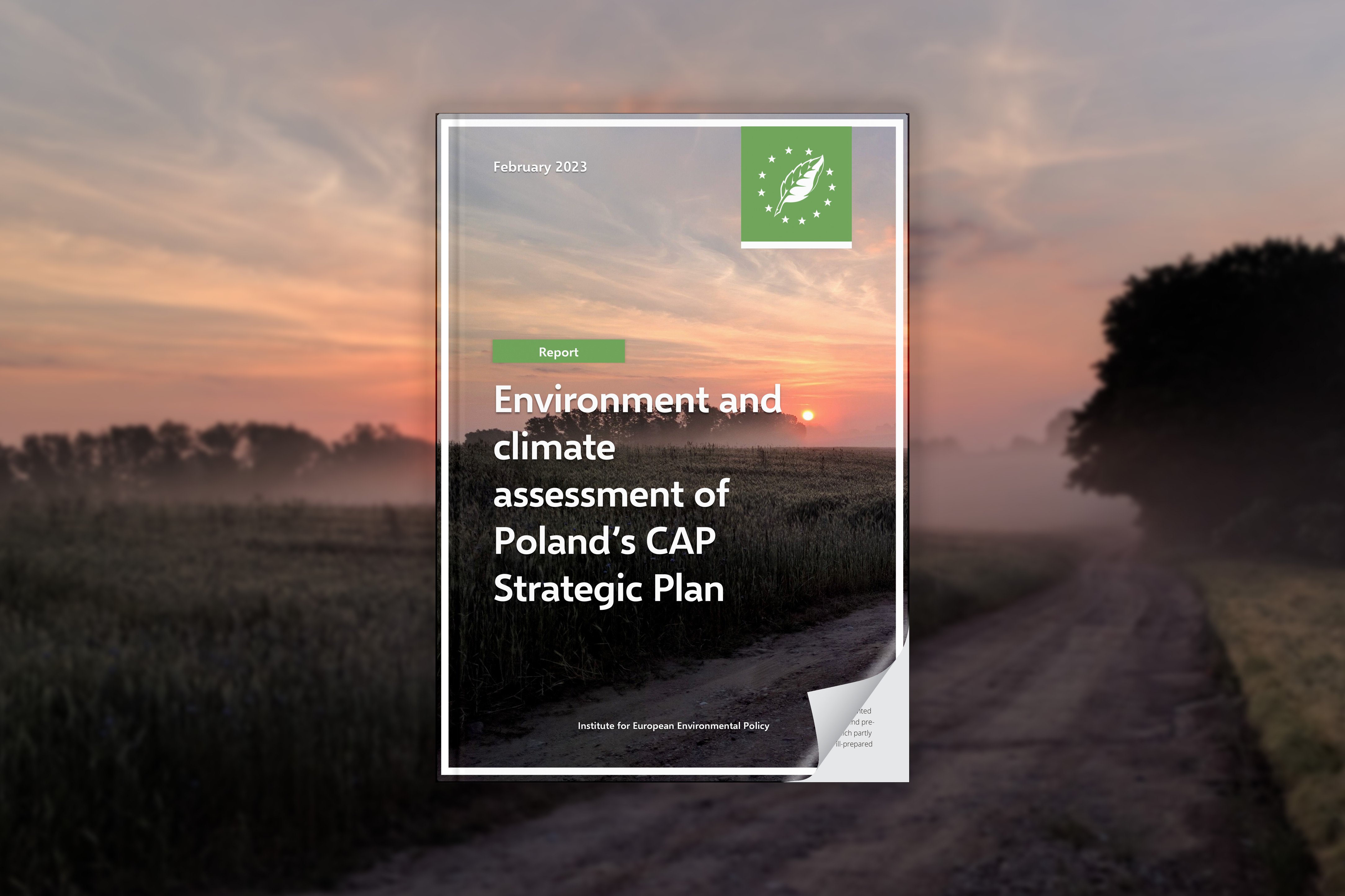AUTHORS: Estelle Midler, May Hobeika (Ecologic Institute), Antonia Riedel (Ecologic Institute), Juliette Pagnon
This report is part of a series of environmental and climate assessments of CAP Strategic Plans, in Member States with large agriculture sectors. It covers climate mitigation and adaptation, natural resources, and biodiversity protection, in this case for Poland.
This assessment identifies the likely contribution of Poland’s CAP Strategic Plan to climate mitigation and adaptation, natural resources, and biodiversity protection. Overall, the findings are that the Plan is insufficient to respond to the country’s needs in relation to environment and climate challenges.
The current European Union food system has considerable impacts on the climate and environment, being responsible for an estimated 30% of the continent’s GHG emissions. The agriculture sector also puts immense pressure on biodiversity as it is a significant contributor to soil degradation and reductions in water quality and availability. The ecological transition of agri-food systems is therefore necessary and urgent, and the EU Common Agricultural Policy (CAP), is the main funding opportunity available for this purpose.
Our analysis reveals that the largest share of Poland’s CAP support continues to go to basic income support payments and there is still significant funding going to coupled support, both of which are not sufficiently conditioned on sustainable practices. The transfer of more than 1.5 billion euros from Pillar II to Pillar I, as well as the large number of interventions that could benefit the environment and climate, but which impacts are limited due to small budgets, further illustrate the lack of priority given to environment, climate and rural development in the Plan. Nevertheless, the Plan contains some interesting interventions and improvements which could be built upon.
To improve the potential impact of CAP spending, the report proposes two sets of recommendations: 1) on potential amendments to Poland’s plan in the current period and, 2) on recommendations for the next CAP and for other related policies.
Summary of recommendations:
- Address gaps in the in the intervention logic, in particular concerning peatland restoration, climate adaptation and biodiversity.
- Strengthen GAEC requirements and evaluate the impact of the 2023 derogations to GAECs 7 and 8.
- Review the eco-schemes on carbon farming and nutrient management and water retention to make them more effective
- Include measures supporting grassland restoration, restoring or creating wetland buffer zones, the rewetting of peatlands in agricultural use and the transition to paludiculture.
- Strengthen interventions supporting biodiversity on arable lands (including support for landscape features).
- Step up the support for organic farming.
- Improve the targeting of some interventions to address specific regional issues (e.g. soil erosion or droughts).
- Include innovative interventions such as result-based payments or bonuses and collective approaches that could be beneficial for the preservation of natural resources and biodiversity, as well as accompanying training and advice.
- Increase the budgets for eco-schemes, environmental and climate commitments, environmental and climate investments and cross-cutting measures, with a corresponding decrease in basic income support and coupled support.
- Fund additional studies and research to evaluate the potential impacts of the Strategic Plan and its interventions on environmental and climate action.
Read the report. Assessments for France, Germany and Spain are also available.


